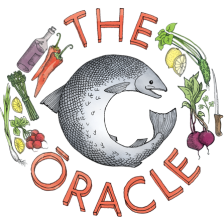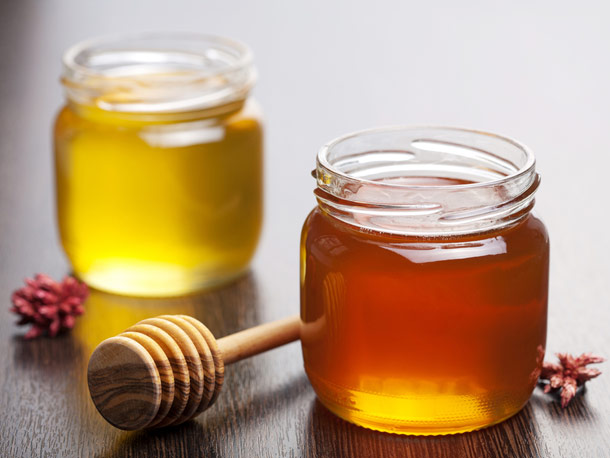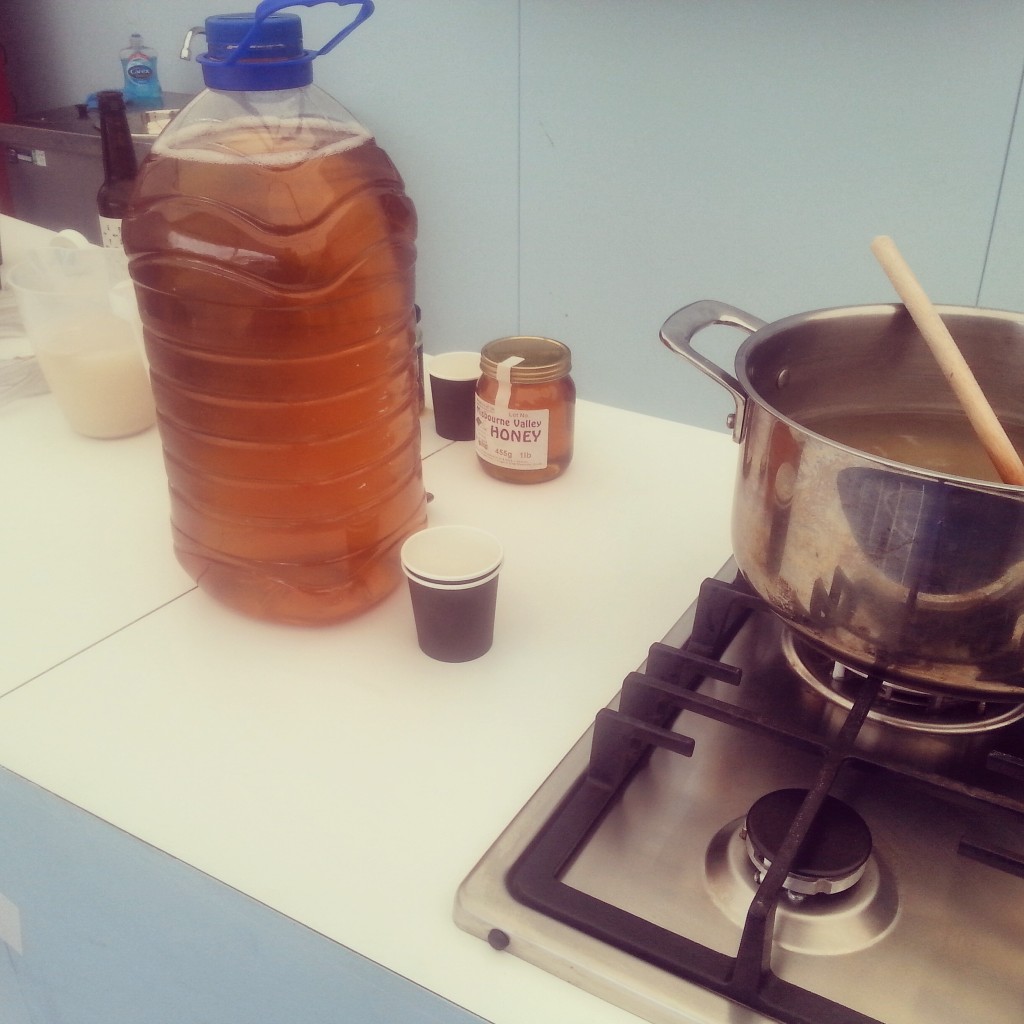While I was at the Taste London Festival last weekend I was lucky enough to see a demo by young UK foodie Tom Gosnell. Gosnell is a major supporter of the Slow Food movement – click here for a brilliant definition of the Slow Food movement here in the UK. I fully support it and think it’s fantastic.
Tom Gosnell was kind enough to share his basic mead recipe that he’s been producing here locally for four years.
Mead is an alcoholic beverage created by fermenting honey with water, and frequently fruits, spices, grains or hops. Hops act as a preservative and produce a bitter, beer-like flavor. The defining characteristic of mead is that the majority of the beverage’s fermentable sugar is derived from honey. It may be still, carbonated or naturally sparkling, and it may be dry, semi-sweet or sweet.
After a quick Google search, I discovered mead dates back throughout ancient history in Europe, Africa, and Asia. The earliest archaeological evidence for the European production of mead dates to before 2000 BC. Mead remains a drink enjoyed today by many cultures including Russia, Finland, and even Ethiopia.
Mead can have a wide range of flavours depending on the source of the honey, additives including fruit and spices, and the yeast employed during fermentation and the aging process.
Gosnell’s recipe is not a traditional mead as his contains 5.5% sugar and is carbonated – so it is a lot sweeter than traditional mead, with an alcohol content of 9%.
Start with 1500g honey and 5L water in a pot, medium heat
Add 150ml lemon juice (this helps the bacteria, yeast, to activate quickly)
This mix is called your “must”.
Cover, leave, cool.
For your yeast, add 12g yeast to 4oomL warm water to activate yeast. Larger (brewers) yeast works quicker, and results in a crisper flavour.
Add yeast to “must”.
Leave two weeks.
Syphon to a clean bottle. Two weeks.
Carbonate.
Job done.



This is an exciting blog. Just by reading it you can almost imagine being there and I am exceedingly jealous.
Looking forward to more insights.